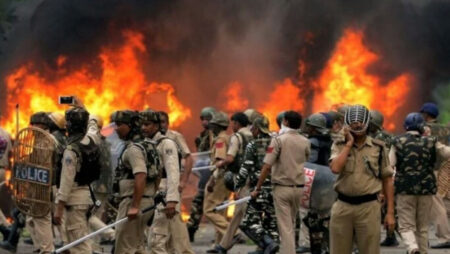The courts observation
The Kerala High Court on Wednesday delivered a noteworthy decision, and has ruled that the admin of a WhatsApp group cannot be held responsible vicariously if any member of the group posts an indecent and objectionable content in the group.
It was delivered by Justice Kauser Edappagath that, vicarious liability in criminal law can only be fastened when a statute prescribes in a statute.
“A criminal vicarious liability can only be applicable if there is a provision to apply the same in a statute and not otherwise. In the absence of a penal provision putting forth vicarious liability, an Admin of a WhatsApp group can not be held responsible for the objectionable post by any of the group members.”
The Court stated that it’s a basic principle of criminal jurisprudence that mens rea (guilty mind) must be an essential element of an offence and both the act and intent must together constitute a crime.
The matter before the Bench
It was placed before the court that the petitioner created a WhatsApp group called ‘FRIENDS’ with some members. Being the creator of that same group he was the Admin. There were two more Admins in that group and one of them being the first accused.
The first accused posted a pornographic video, on March 2020, displaying children engaged in sexually acts in the group.
Therefore, a crime was registered in the form of a complaint against the first accused under Sections 67B (a),(b) and (d) of the I.T. Act, 2000 and Sections 13, 14 and 15 of the PCSO Act.
Later on, being the creator of the group, the petitioner was added as the second accused because he was the co-admin. Aggrieved by the case instituted against him, he moved the High Court.
The respondents was represented by Senior Public Prosecutor M.K. Pushpalatha in the matter and the petitioner was represented by Advocates Anil Kumar M. Sivaraman and C. Chandrasekharan for the same.
The prima facie question before the Court was to decipher whether the creator or admin of a WhatsApp group holds criminal liability for offensive content posted by a group member and the specific question was whether the petitioner could be held vicariously liable for the act of the first accused.
How did the court decide?
It was observed in accordance to the inference by the Bombay and Delhi High Courts, the only privilege that a Admin of a WhatsApp group have over other members is that, he can either add or delete any of the members in that group and he does not have physical or any control otherwise over other members of that group.
And it was also logical that it’s demandable for him to moderate or censor messages being posted in group. Thus, it was concluded that the creator or admin of a WhatsApp group cannot be held vicariously liable for any objectionable content posted in the group.
The Judge observation shows that there was nothing on record that indicates the indulgence of the petitioner in publishing or transmitting, in any electronic form the alleged obscene material nor he browsed or downloaded the said material nor in any manner facilitated abusing children online.
As the basic element of the offences alleged in the said case was altogether absent as against the petitioner, the Court found it a fit case and thereby it can exercise its extraordinary jurisdiction under Section 482 of Cr.P.C.
As such, the proceedings pending against the petitioner were set aside due to balled allegation and the petition was allowed.
Published By: Jaspreet Singh
Edited By: Kritika Kashyap












